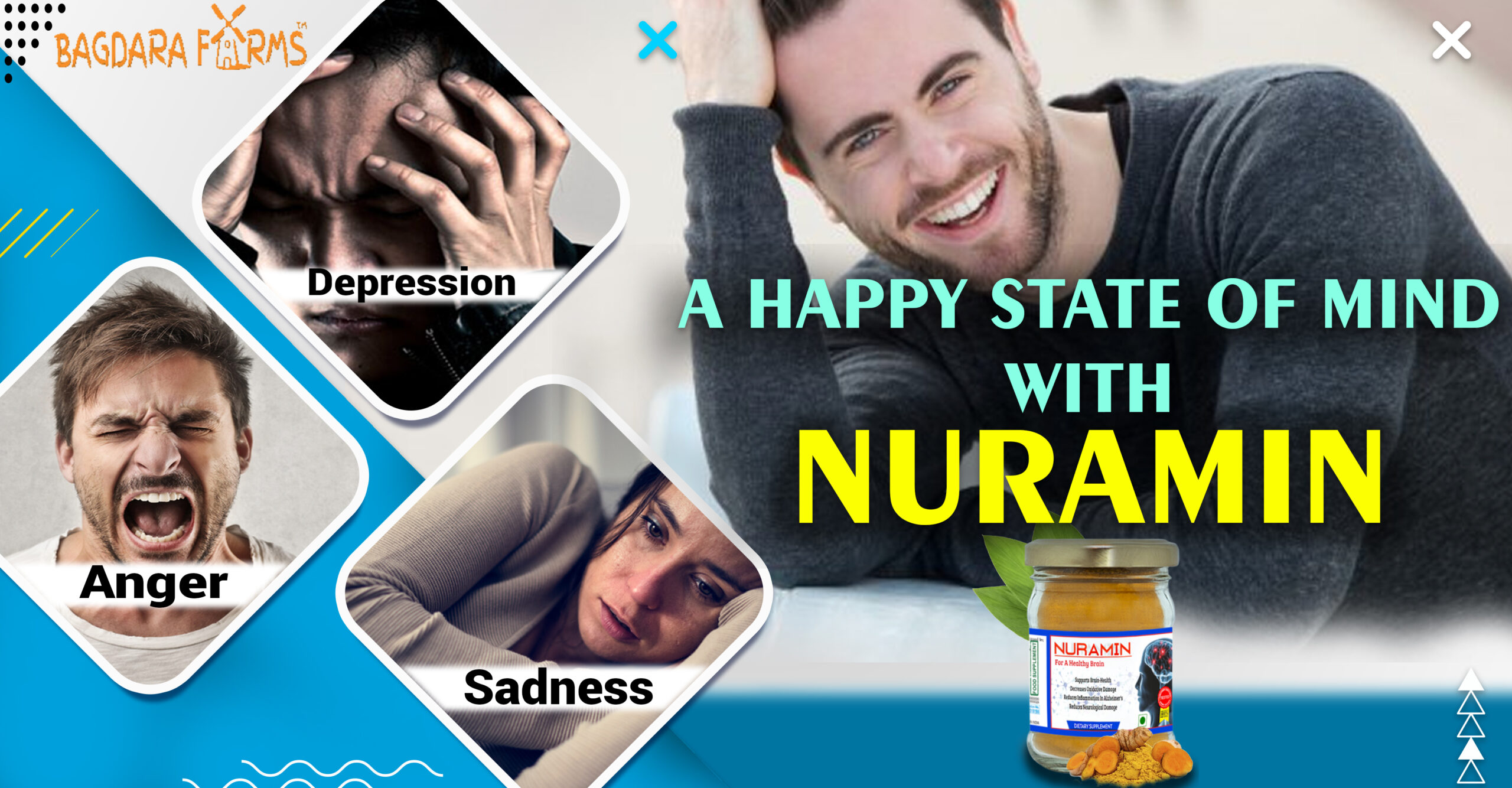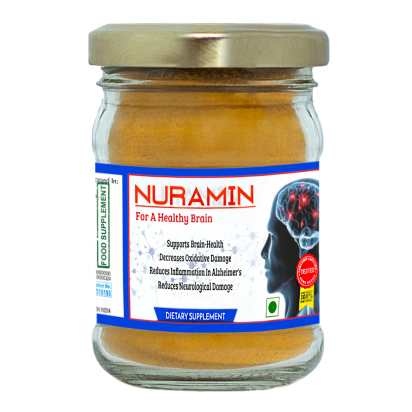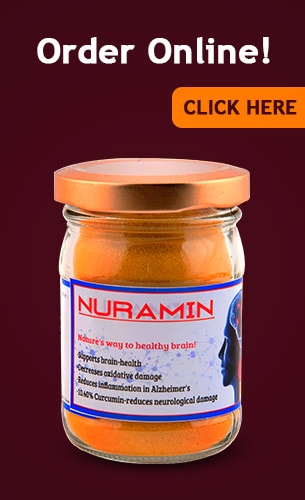A HAPPY STATE OF MIND WITH MEDICINAL TURMERIC

A HAPPY STATE OF MIND WITH MEDICINAL TURMERIC
Depression affects people from all walks of life, no matter their background. It can affect people of all ages as well. COVID-19 has tripled the rate of depression in all demographic groups—especially in those with financial worries—and the rise is much higher than after previous major traumatic events.
CAN THIS BE HELPFUL IN KEEPING AWAY THE DEADLY CORONA VIRUS?
Armed with multiple anti-inflammatory effects, curcumin has been anticipated as a impending treatment for COVID-19.
What Is Depression?
Depression is categorized as a mood disorder. There are uncontrollable and sudden feelings of sadness, loss, or anger that hinder with a person’s everyday activities. Depression (major depressive disorder) is a common and serious medical illness that undesirably affects how you feel, the way you think and how you act. Fortunately, it is also mendable. Depression causes feelings of sadness and/or a loss of interest in activities you once enjoyed. Severe changes in daily life over the past century are fuelling the growing burden of chronic diseases, including depression.
How Can Curcumin Help?
Has Been Around For Centuries
Medicinal turmeric has been used for centuries in Ayurvedic medicine to treat an assortment of conditions, including anxiety and depressive disorders. Curcumin found in medicinal turmeric has displayed a broad range of properties that seem pertinent to depression pathophysiology. Curcumin has demonstrated an effectiveness in modifying neurotransmitter concentrations, inflammatory pathways, excitotoxicity, neuroplasticity, hypothalamic–pituitary–adrenal disturbances, insulin resistance, oxidative and nitrosative stress, and endocannabinoid system, all of which can be pooled in MDD ( Major Depressive Disorder) pathophysiology.
As An Anti-Inflammatory
Curcumin rich medicinal turmeric regresses the depressive behaviour and weakened LPS-induced microglial activation and overproduction of pro-inflammatory cytokine (interleukin-1β and tumor necrosis factor-α). Medicinal turmeric rich in curcumin also inhibits LPS-induced NF-κβ activation in the hippocampus and pre-frontal cortex. In addition, curcumin could thwart the increase in the levels of nitric oxide synthase and cyclooxygenase-2 mRNA in the hippocampus and pre-frontal cortex. Regular administration of curcumin produced antidepressant-like actions and reversed the inflammatory responses and neuronal structural abnormalities, thus finishing that inhibiting the IL-1β pathway could account for curcumin efficiency.
According to https://www.frontiersin.org/articles/10.3389/fpsyt.2020.572533/full curcumin decreased the inflammatory cytokines IL-1β and TNF-α in depressed patients in comparison with the placebo group. It has been displayed in a number of clinical trials that curcumin can lower TNF-α, IL-6, and CRP levels in patients’ plasma. Recent studies have shown a close link between depression and chronic inflammation and research suggests that chronic inflammation and depression aggravate one another. The magical, medicinal curcumin eases inflammation in our immune system. There’s mounting suggestions that inflammation is linked to depression. It’s thought that natural anti-inflammatory like curcumin can help relieve symptoms of depression by fighting chronic inflammation naturally.
Prevent Cell Apoptosis
Curcumin in medicinal turmeric was able to constrain the generation of ROS and NLRP3 inflammasome activation measured by NLRP3 and caspase-1 countenance, which ensued in a lessening of IL-1β secretion. Curcumin could also avert glutamate prompted cell apoptosis. Curcumin has been shown to alleviate the depressive symptoms and other physiological alterations induced by cortisol.
A Powerful Antioxidant
Patients with depression have lower levels of anti-oxidative systems; they demonstrate an augmented amount of oxidative stress markers when likened with healthy individuals. Curcumin found in medicinal turmeric is a powerful anti-oxidant; it scavenges free radicals that create inflammation. By plummeting oxidative stress, medicinal turmeric being an anti-inflammatory brings down inflammation too.
Conclusion
Thus, curcumin could exemplify the beginning of nutriceuticals as anti-inflammatory and antioxidant components seem to be a likely substitute in the treatment of depression. As curcumin in medicinal turmeric shows neuro-protective effects, especially in contradiction to stress-induced toxicity, it also suggests the use of such molecules as prophylactic agents. Avoid medicinal turmeric supplements that don’t say how much curcumin is in them. These may have more of turmeric’s other compounds in them than curcumin. There are also supplements available with a good percentage of extracted curcumin. Getting a pure and organic supplement may be your best option. Be sure to follow any dosage or use information on the label. Nuramin from Bagdara Farms is a powerhouse for brain health, it is rich in neuro-protective properties, a great natural anti-depressant, enhances neuro plasticity and neurogenesis, it lowers risk of dementia, improves cognitive function, enhances the regeneration of brain cells, attenuates Alzheimer’s-related chronic inflammation, antioxidant properties prevent brain cell damage, Non GMO, natural and 100% organic. Choose what is best for you and your health.




